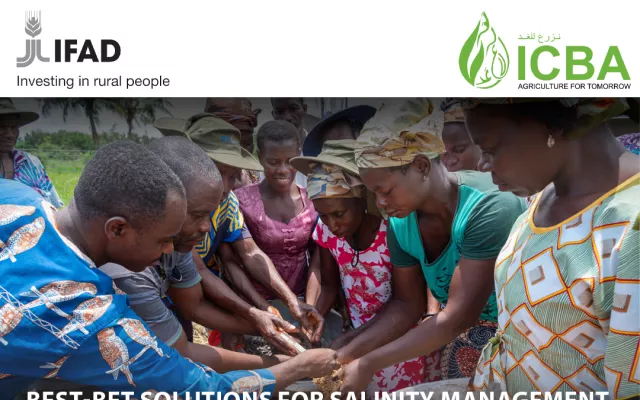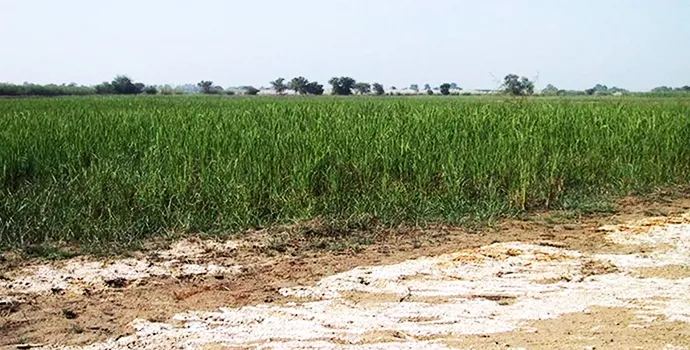ICBA, IAEA organize training on water management for Middle East scientists
12 October 2016
Sustainable food production is challenging for farmers in marginal environments, which are characterized by limited rainfall, extreme temperatures, saline and low-fertility soil. Forecasts for regions like the Middle East and North Africa (MENA) show that they will be extremely vulnerable to climate change and face the risk of further aggravating the already stressed water and soil resources. In order to ensure food security in the region, efforts are needed to assess the actual soil and water requirements to attain desired yields in view of changing climatic conditions.
This challenge informs capacity-building efforts by the International Center for Biosaline Agriculture (ICBA) to equip researchers, farmers and other practitioners in partner countries with necessary knowledge and skills to adapt to climate change and effectively deal with lack of water resources.
As part of this work, ICBA jointly with the International Atomic Energy Agency (IAEA) organized a training course “Water management and use of crop simulation model (Aqua Crop)” from October 2-12, 2016 in Dubai, the UAE.
The training course focused on such issues as assessment of water resources through conventional and new technologies, water management and application of crop simulation models to encourage the use of soil water monitoring techniques and the evaluation of rainfall and irrigation on crop production using a comprehensive view.
“When farmers face the task of managing their crops on poor soils under dry climatic conditions, scientists and water managers can use such tools that can assist in improving irrigation management and optimize the crop yields with proper assessments,” said Dr. Shoaib Ismail, Director of Research and Innovation, ICBA.
Spread over two weeks, the course aimed to provide knowledge on the use of nuclear and conventional techniques to determine soil water content and the use of a crop simulation model AquaCrop. Attended by 11 agricultural scientists from Jordan, Kuwait, Lebanon, Oman, Qatar, Syria, Saudi Arabia and the UAE, the course included sessions on:
- Data management and calculation for water use and its efficiency;
- Estimations of crop coefficient (Kc) from crop growth and development of weather parameters to assess the potential evapotranspiration;
- Use of neutron moisture probe to measure soil water potential for irrigation scheduling;
- Theory of the AquaCrop model and practical sessions on the use of the model with case studies.










